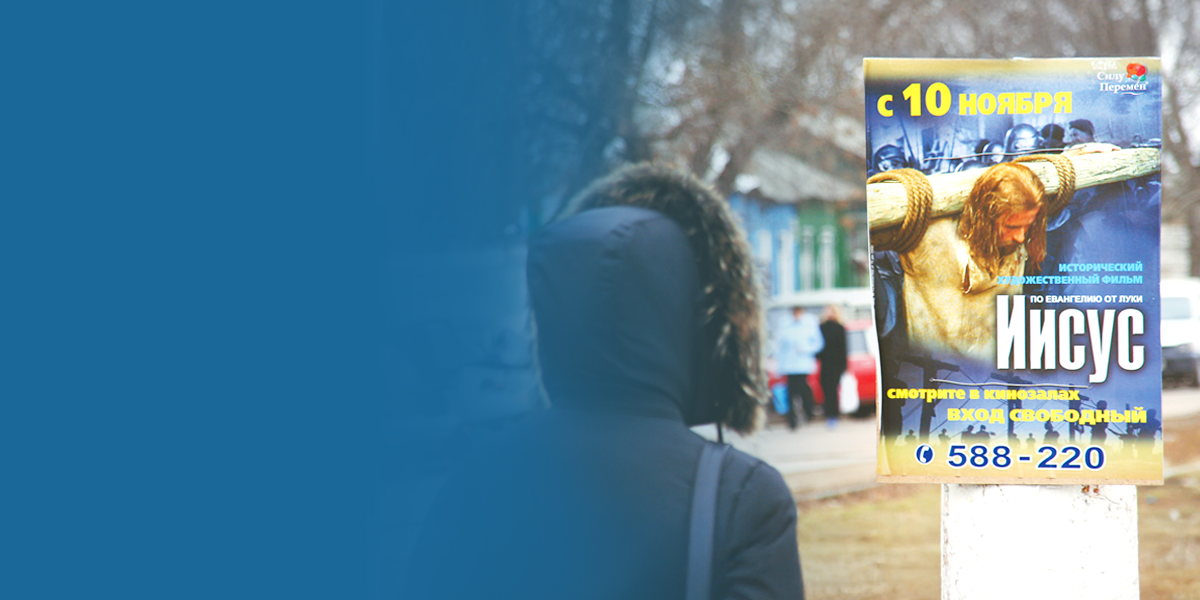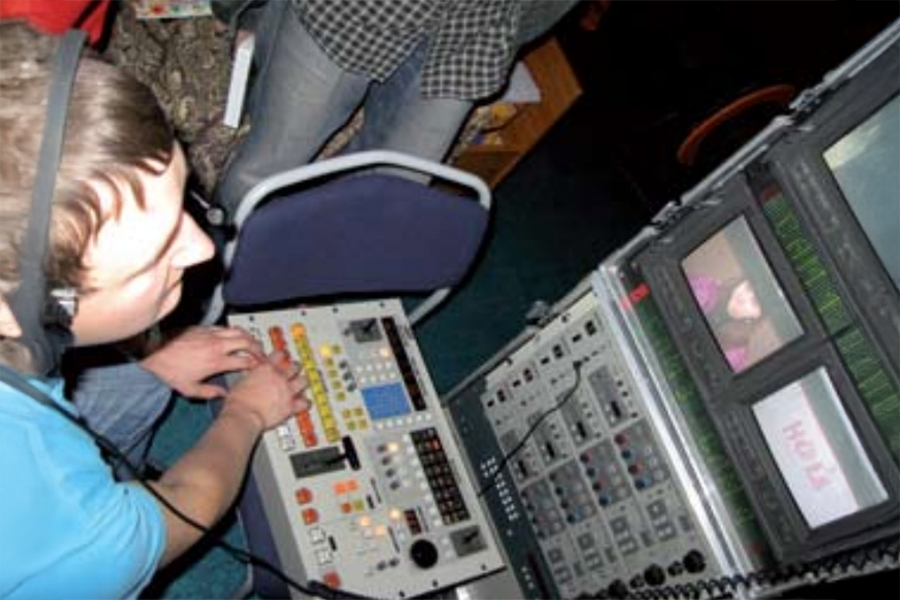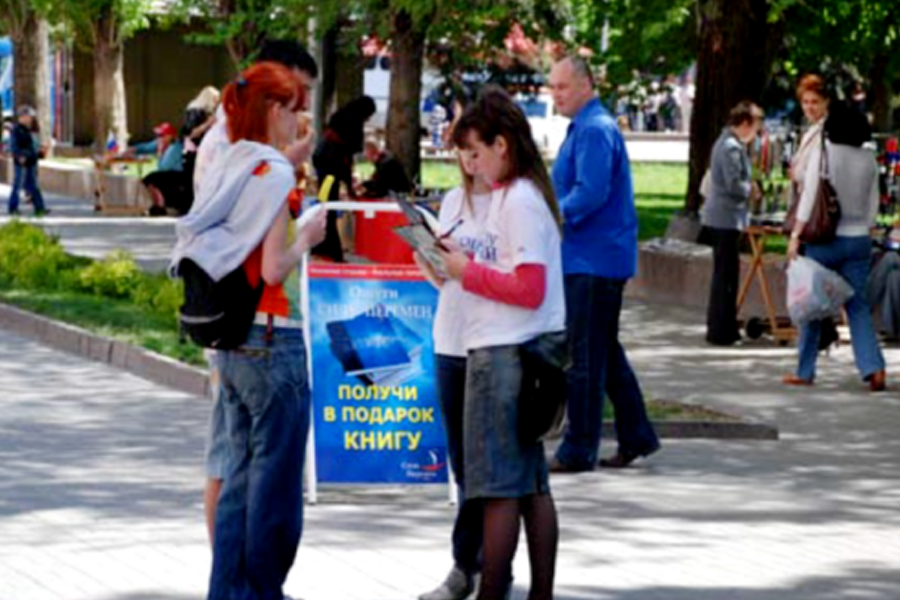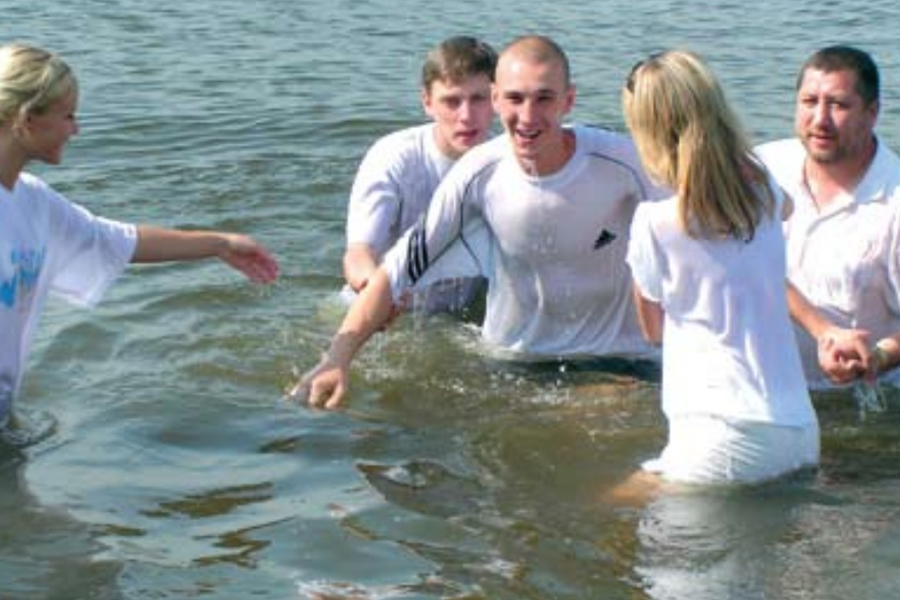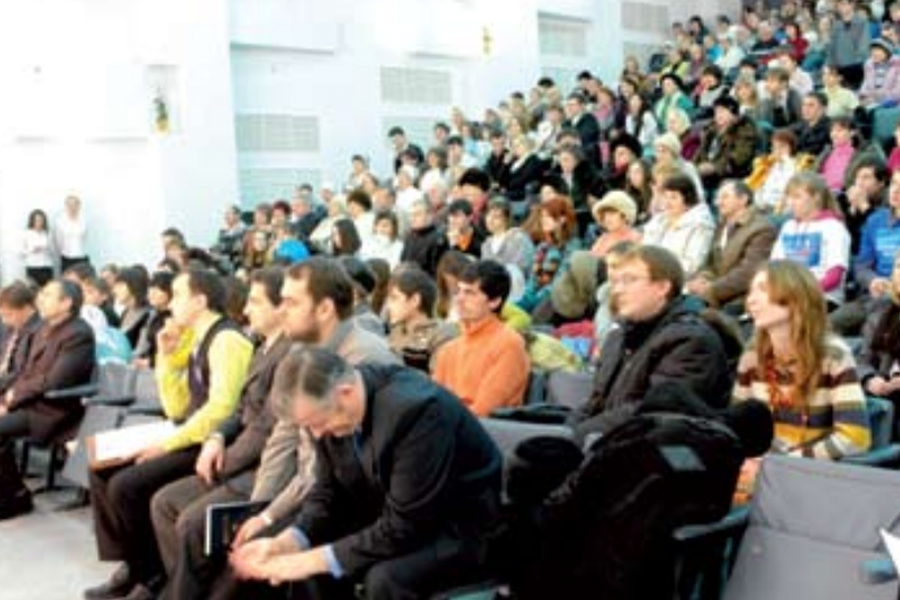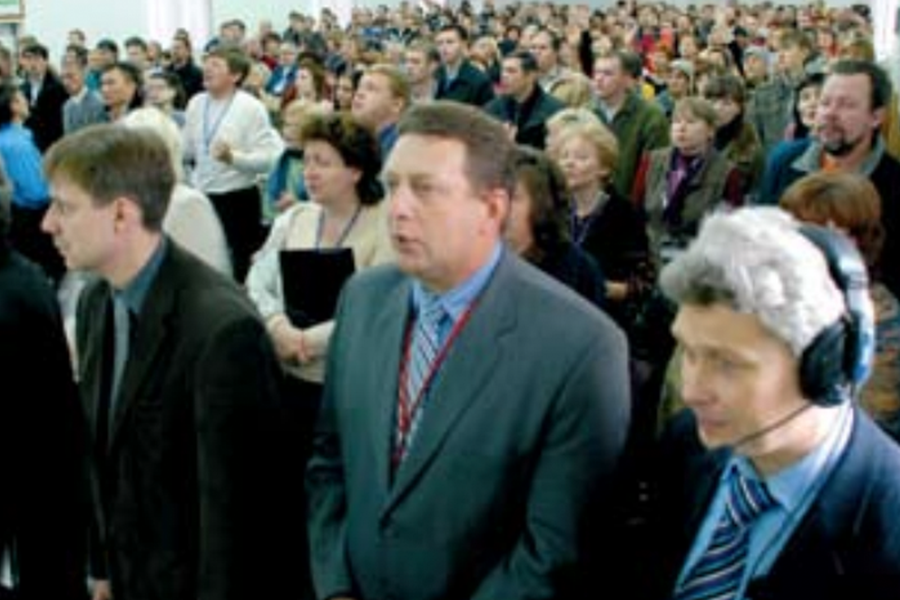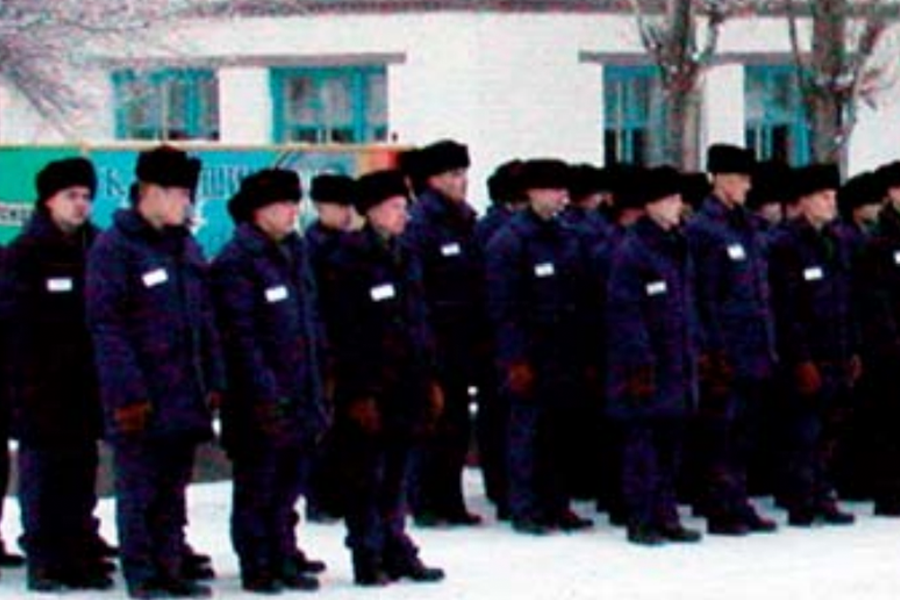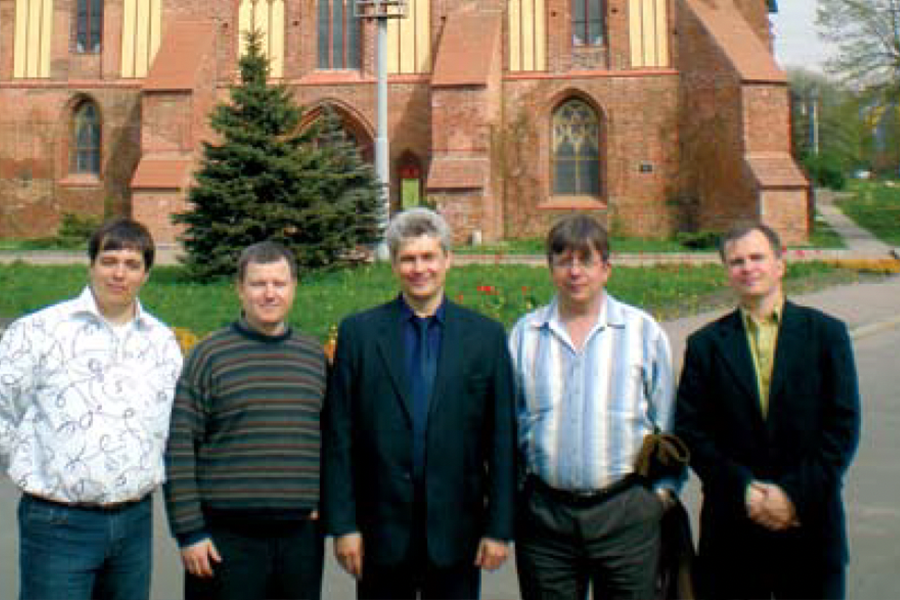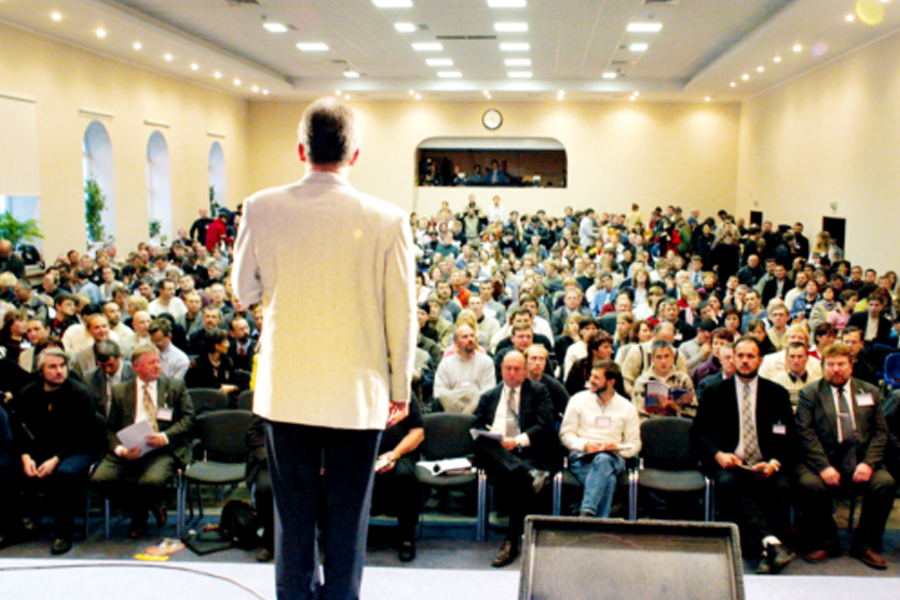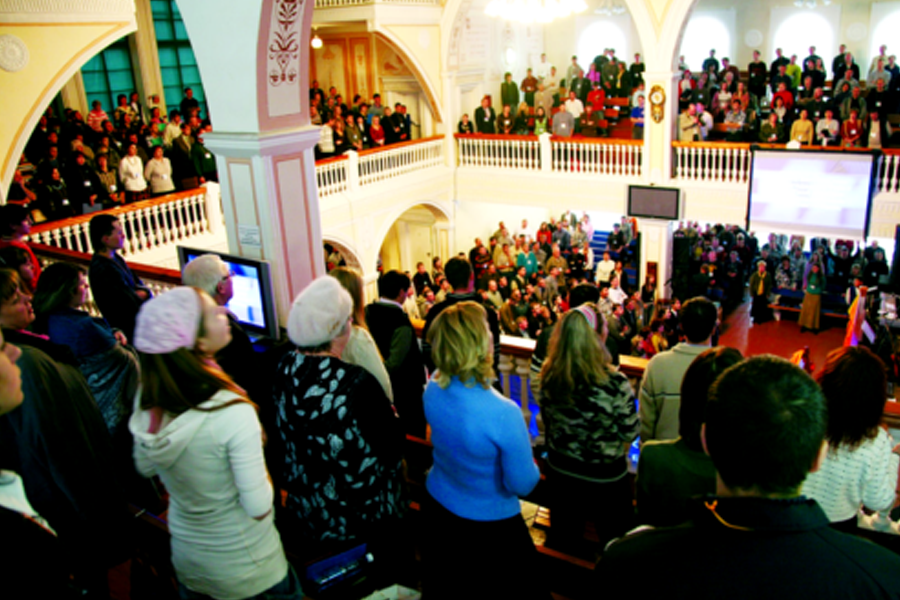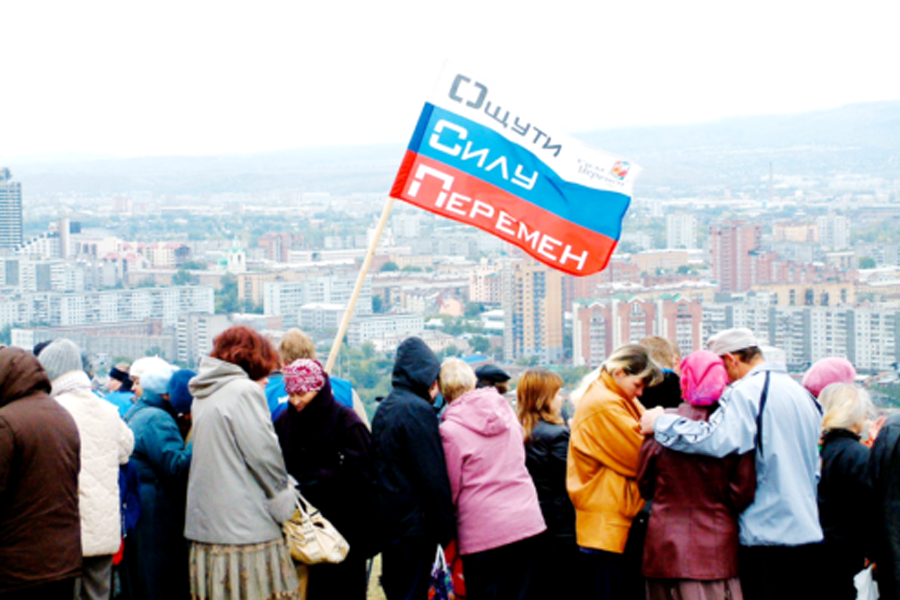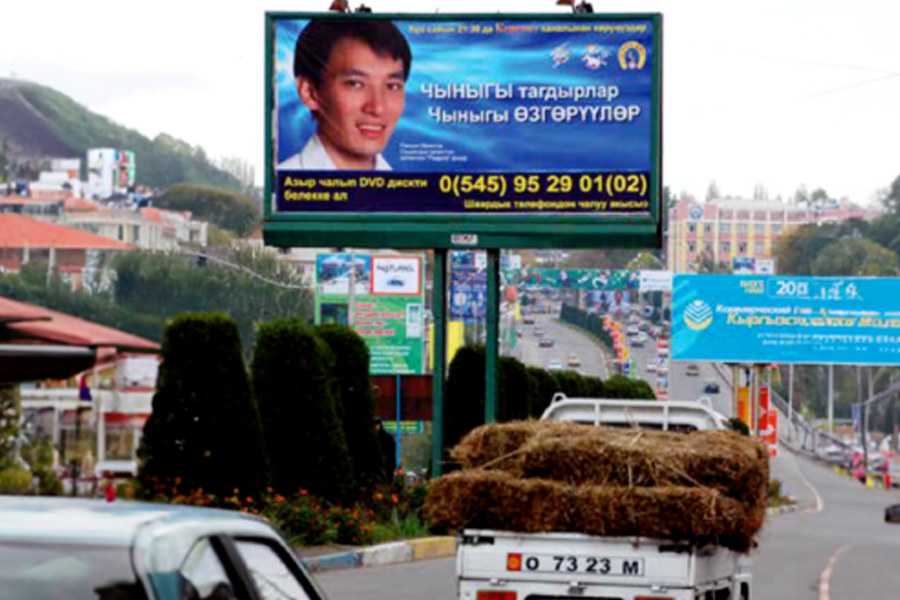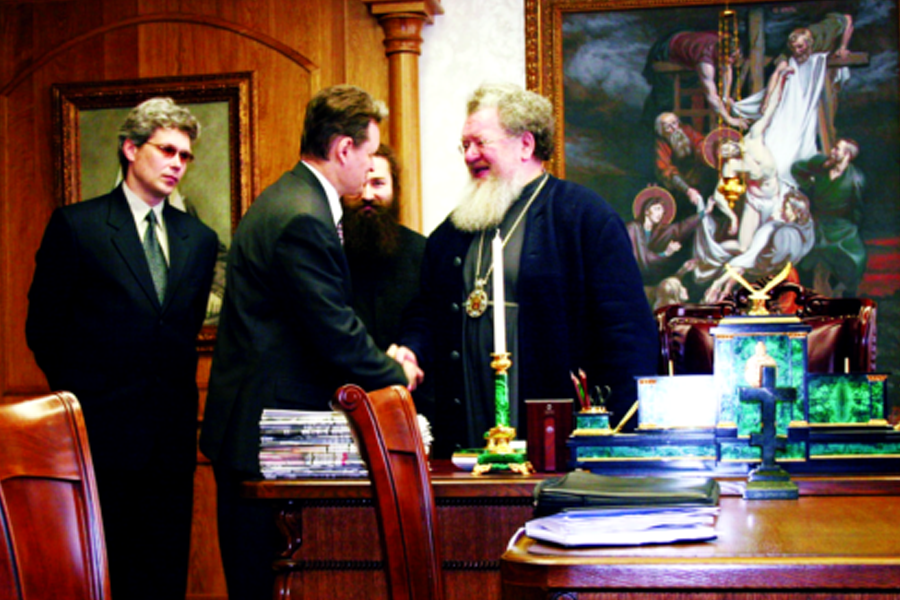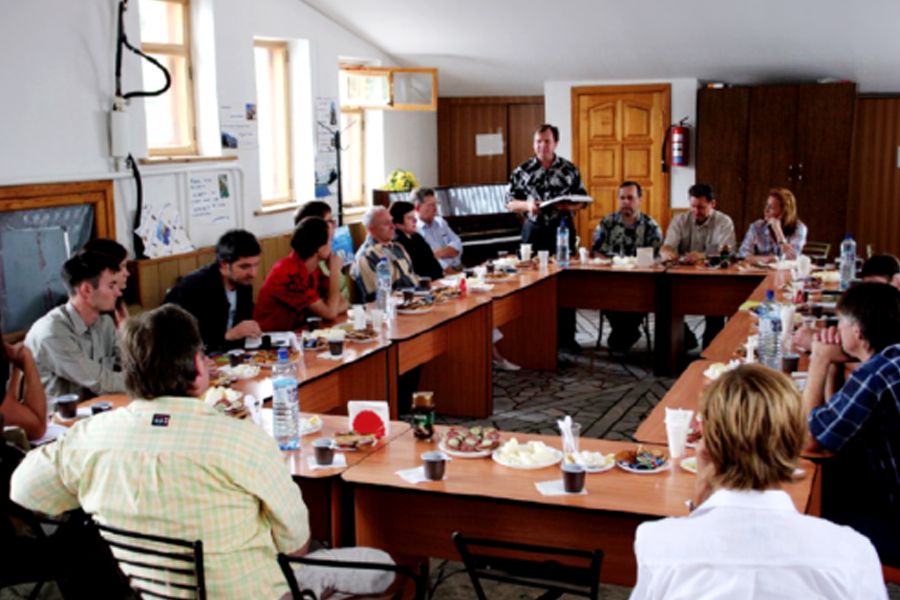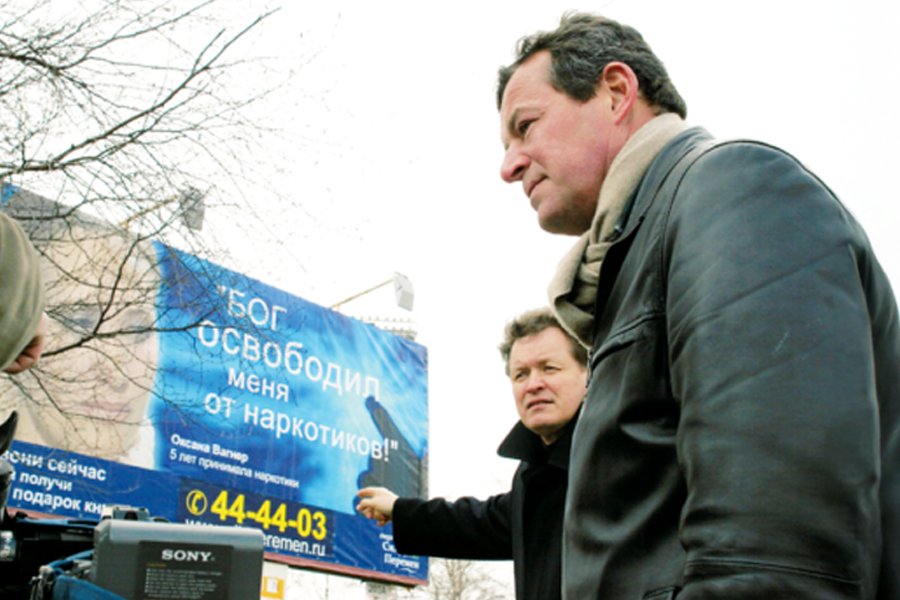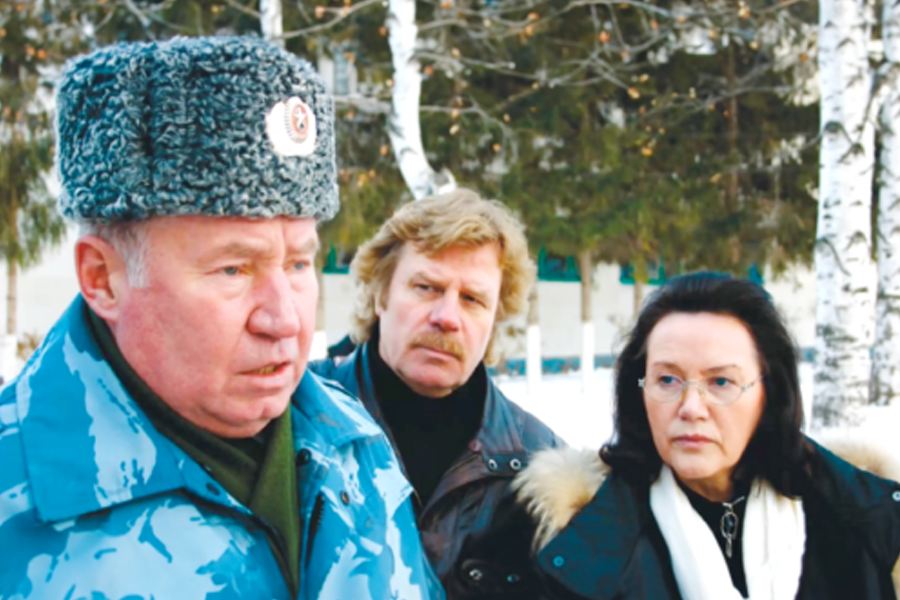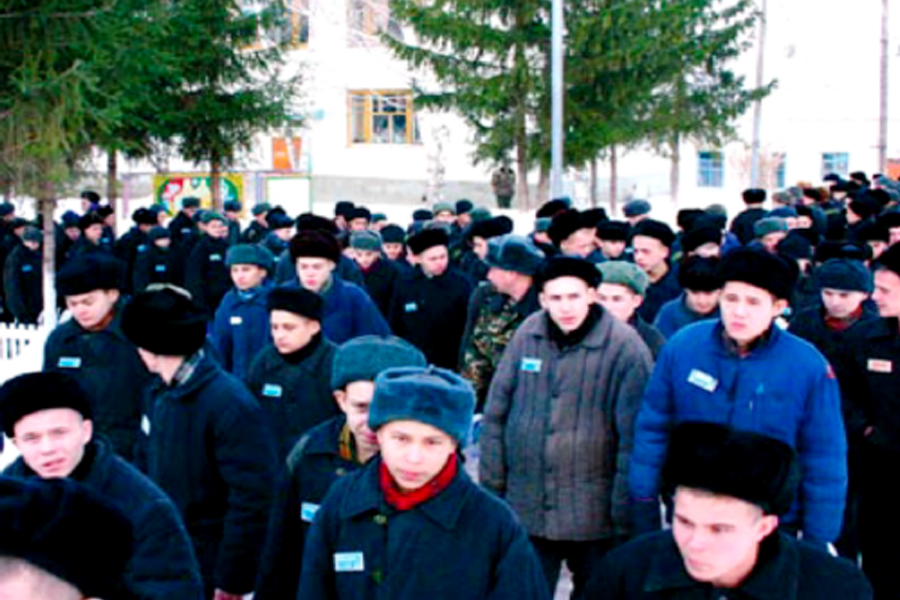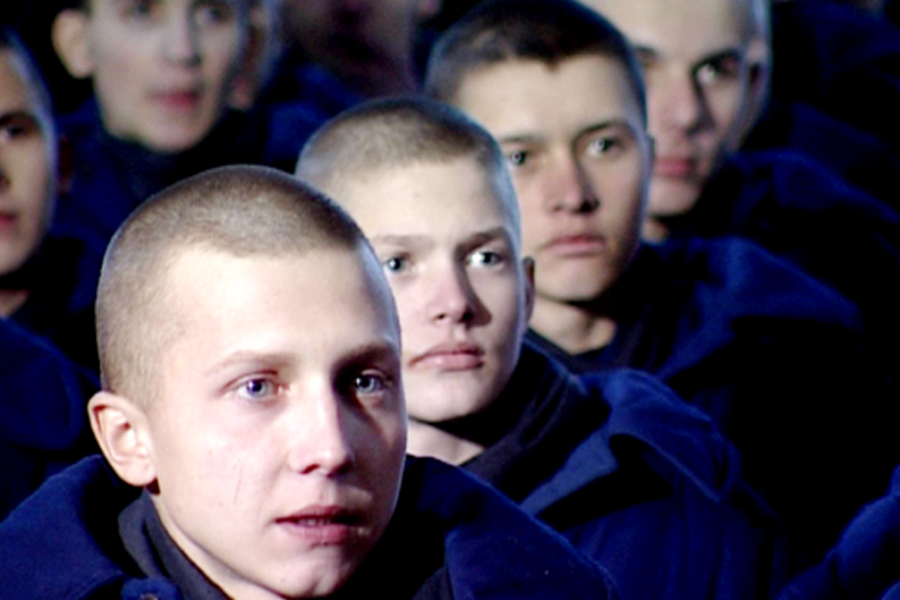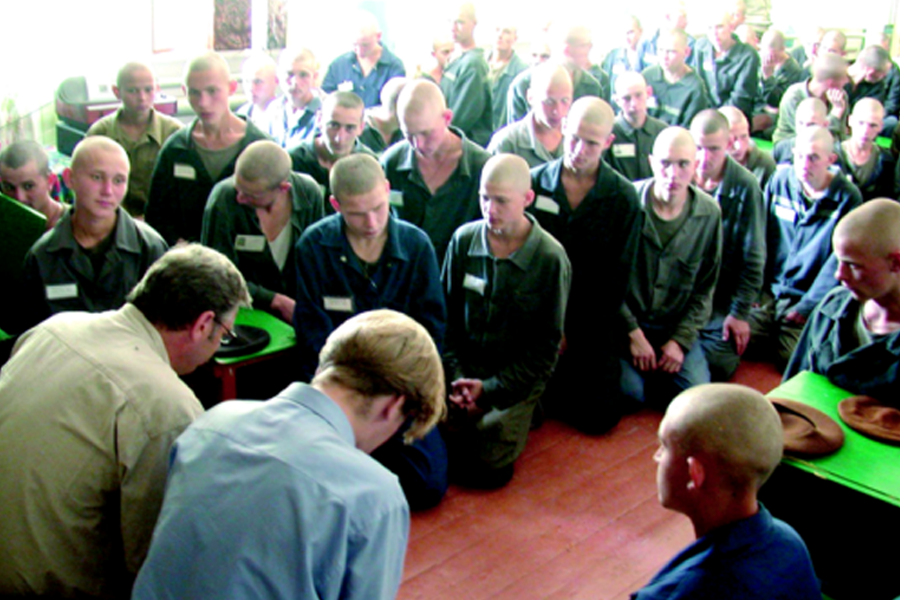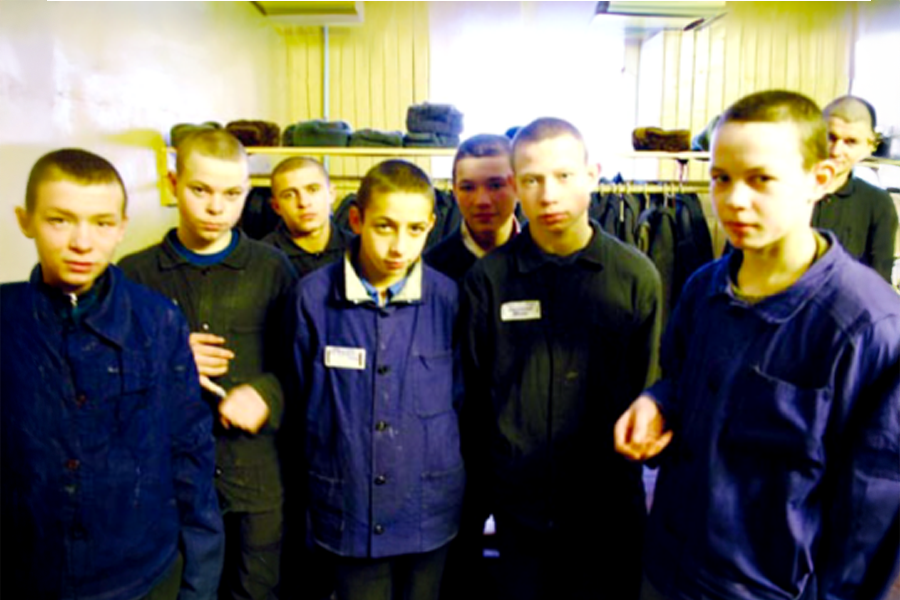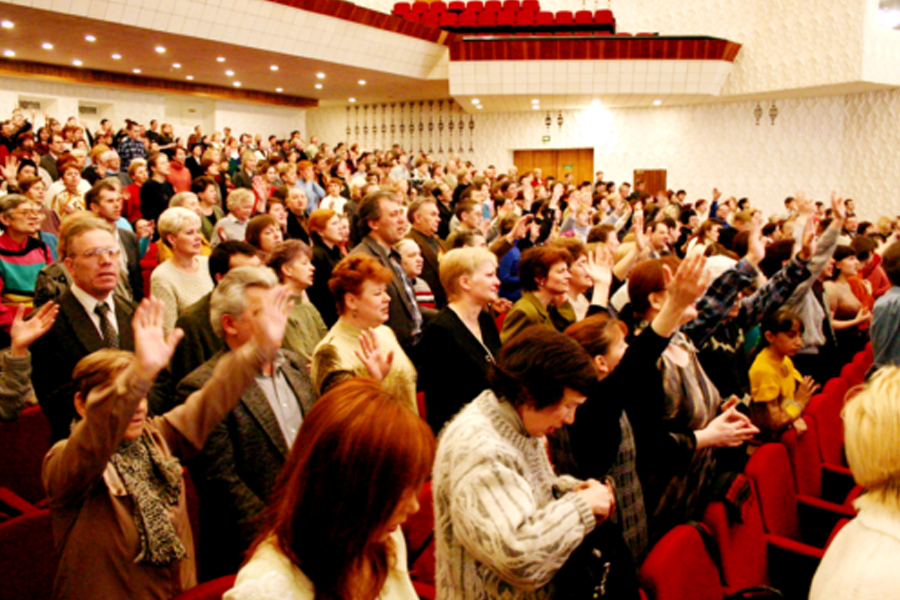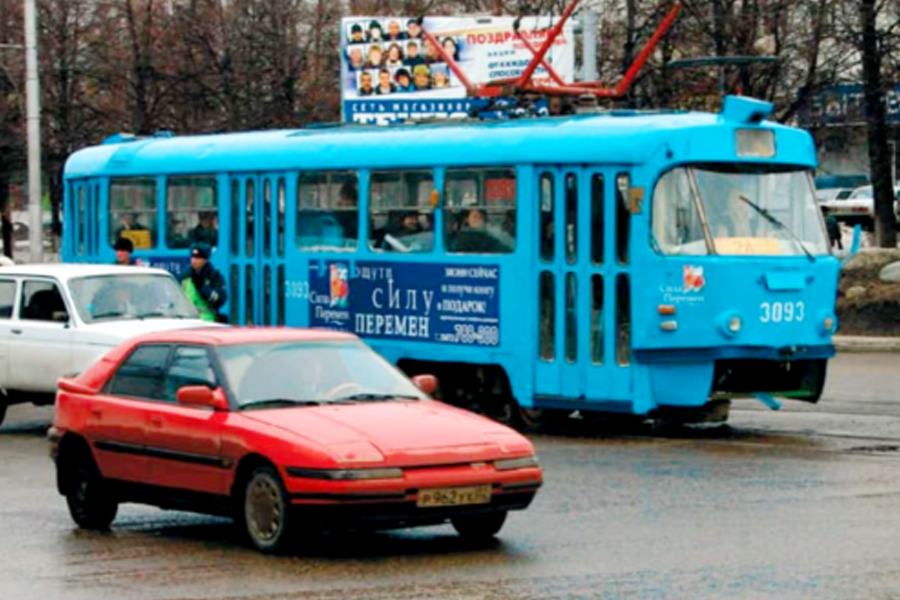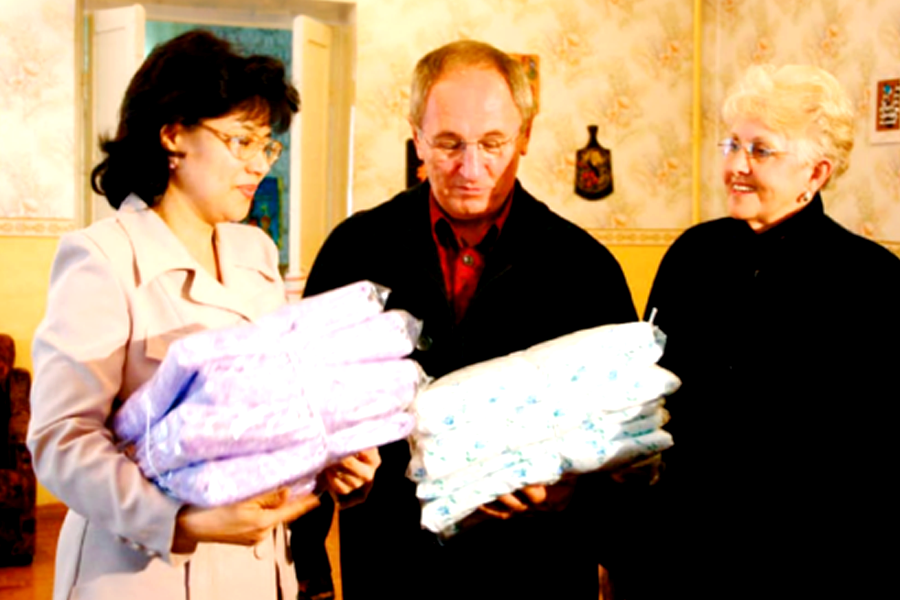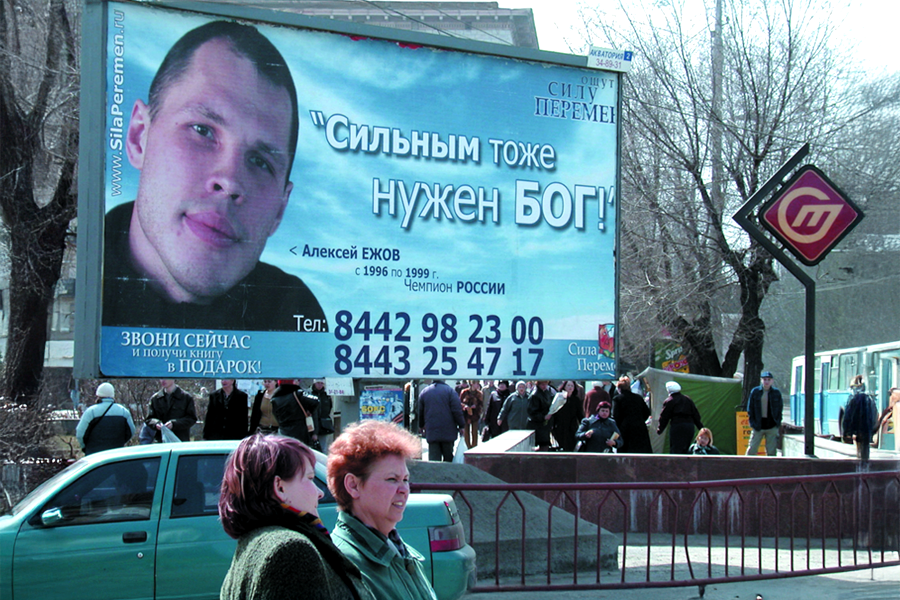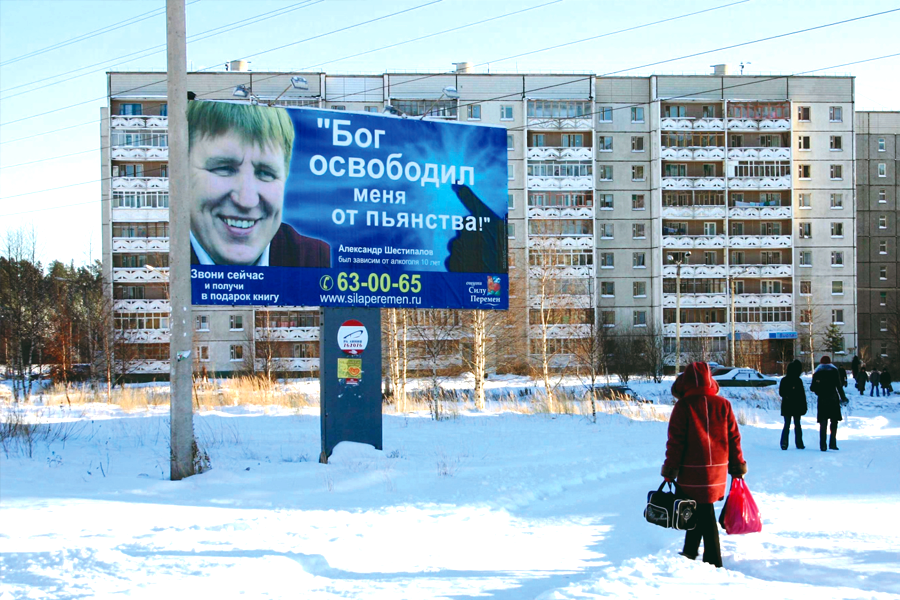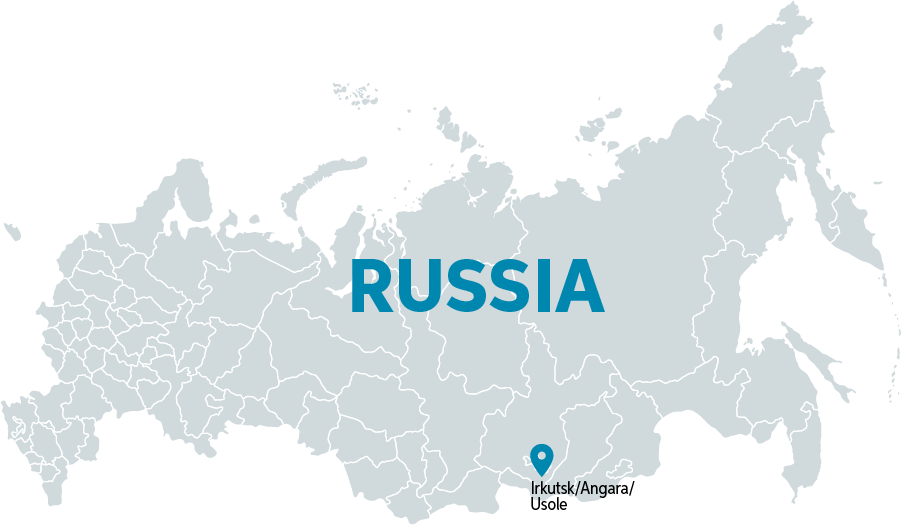
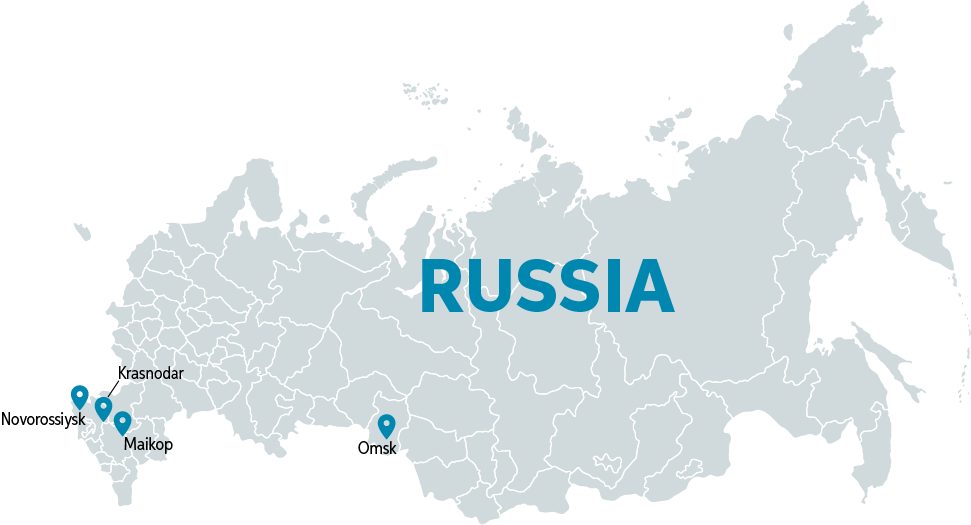
Although Russia is our primary missions target area, conditions conducive to evangelism in that country have deteriorated. At times, there has been heavy-handed opposition to the Gospel from local Russian authorities and the state Russian Orthodox Church. Few ministries continue to work in Russia today. There are 150 million people living in Russia and most will only associate Jesus with an icon, a painting, incense or a golden onion-shaped dome on a church. They do not know that Jesus came to set people free from sin and addictions,to restore broken relationships and to destroy the works of the devil in their lives. The Mega City Media Evangelism Campaigns proclaim this message of hope to millions of lost and searching souls. We will launch another massive media mission campaign in the great Russian city of Krasnodar on November 1st. In addition, a parallel campaign will also take place in nearby Novorossisk, a major Russian naval base on the Black Sea. Our main missions production studios and administrative headquarters are located on the outskirts of Helsinki Finland in Northern Europe, about 100 miles from the border with Russia. Many of our Finnish partners have asked: "Will we ever see such a media outreach in Finland?" This past week, over 80 Finnish pastors met and agreed in prayer that a Mega City Media Evangelism Campaign will take place in the Finnish capital city of Helsinki during the fall of 2011. Fervent prayer is the key.
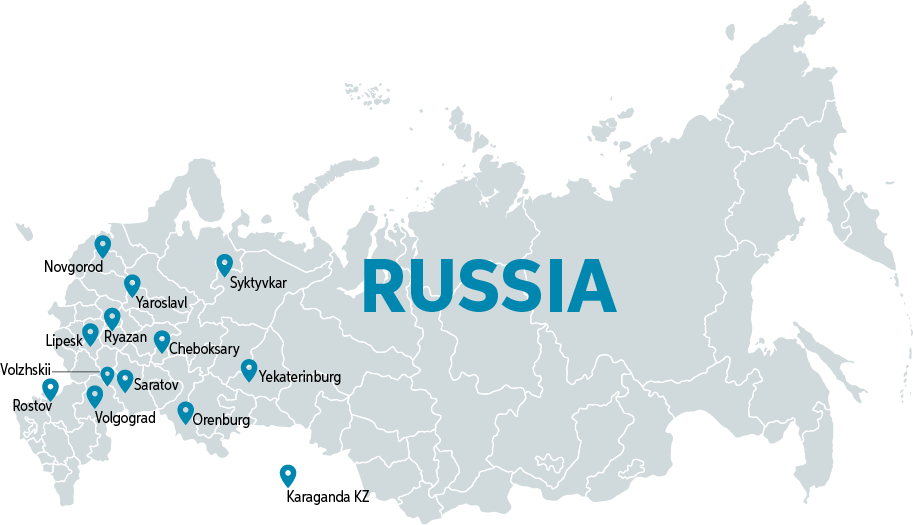
The spiritual hunger in Russia was great. Hannu was thrilled to find out that church leaders from twelve satellite cities surrounding Rostov-on-Don had requested similar campaigns because of the reports they had heard and what they had seen taking place in Rostov-on-Don.
As a result, Power To Change campaign books were delivered to the 12 churches in 12 cities, equipping them to conduct their mini-campaigns.
One pastor told of a teenage boy who had called, requesting a copy of the campaign book. While reading the book, he became a believer in Christ and immediately began attending one of the campaign churches.
His mother became concerned believing her son had signed up at a dangerous sect. She called the campaign office saying, “I want to know what you have done to my son!” She asked for her own copy of the book to see what her son had gotten involved in. She read it and subsequently gave her life to Jesus as well. According to the pastor, she and her son attended the church and were growing in faith.
The churches in the city of Rostov were seeing a clear move of God as church members, most often young people, were out eagerly taking the Gospel to the people in the streets in a personal way. Once the 30-day Christ-centred messages in the ads and the television and radio programs disappeared, the churches continued to meet all those who responded to the campaign message. It was an enormous task in diligence.
Yekaterinburg, a city of two million located just east of the Ural Mountains, was another key site for the evangelistic campaign. Historically marked by the tragic execution of Czar Nikolai II and his family in 1918, the city carries a somber legacy from the Russian Revolution. During a visit to the memorial site, Hannu Haukka reflected on the haunting expressions of the royal family depicted in a statue, recognizing the symbolic significance of now proclaiming the message of Jesus’ blood—offering forgiveness, peace, and reconciliation—in the very place where innocent blood was once shed. The moment was deeply personal for Haukka, as his Aunt Maija descended from the Czar’s adjutant, who remained loyal to the royal family and perished alongside them.
The campaign in Yekaterinburg sparked a powerful spiritual response, with nearly 20,000 people reaching out through calls, texts, and other forms of contact. For many, this was their first exposure to the idea that God is not a distant, mysterious icon, but a living, personal Savior who desires a relationship with them. The campaign revealed a deep hunger for hope and transformation, demonstrating that even cities marked by pain and history can become places of new spiritual awakening.
In Volzhsky, an evangelism campaign faced unexpected opposition when a city official ordered all outreach activities to stop, threatening arrest for those involved. An arrest order was even issued as pressure mounted against the churches participating in the effort.
However, the situation was quickly resolved when the campaign leader, Sergei, contacted the city mayor directly. Upon learning of the interference, the mayor intervened by personally reprimanding the hostile official and canceling the arrest order. He assured Sergei that such obstruction would not happen again and expressed strong support for the campaign, stating, “What you do is the only power that can straighten out the minds and lives of the people of our city.”
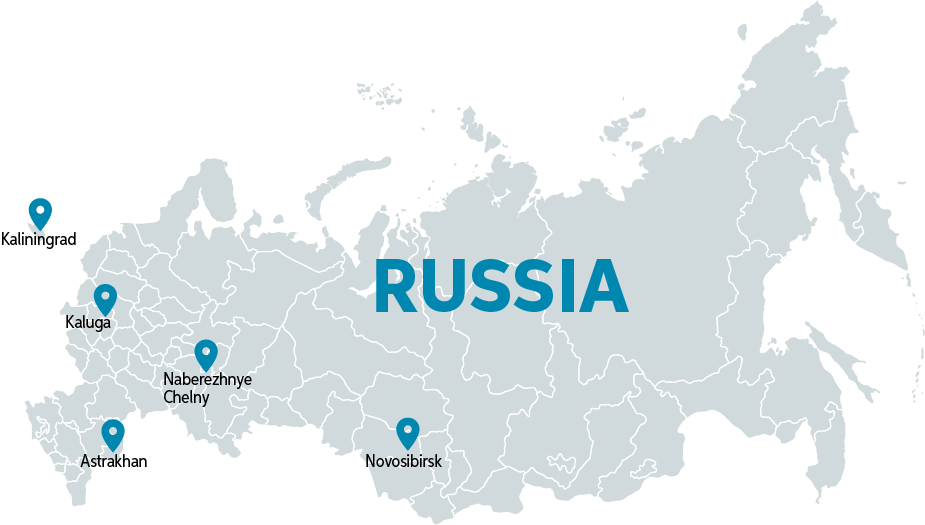 Mega City Campaigns were held in Nab Chelny, Astrakhan, Kaliningrad, Kaluga, and Novosibirsk.
Mega City Campaigns were held in Nab Chelny, Astrakhan, Kaliningrad, Kaluga, and Novosibirsk.
Preparations are underway for the Mega City Campaign. Kaliningrad is located close to the Polish border on the shore of the Baltic Sea. Over a million people, mainly military personnel, live there. What remained of the largely destroyed Prussian and German town of Königsberg, which had been founded in 1255, was occupied by the Soviet Army in 1945 and renamed Kaliningrad in 1946.
City after city, the demand for campaigns grew, as did the resistance. The Russian Orthodox Church began to persecute those involved in the city campaigns. The summit in Volgograd was almost cancelled when Russia’s Ministry of Defense official invalidated the venue rental agreement was booked for the event.
In Novosibirsk, forty-two churches from various denominations have united to launch a large-scale evangelistic campaign. Together, they plan to distribute 400,000 leaflets inviting people to call a dedicated number for more information about Jesus Christ. Callers will have the option to request a book, schedule a visit, or ask questions. The campaign is further amplified through advertisements on Novosibirsk’s major TV channels, each posing a thought-provoking life question to prompt viewers to call and engage.
The foundation of this outreach is prayer, with congregations supporting the effort through church services and prayer meetings. The churches have set ambitious goals: to create thousands of personal contacts and ultimately lead 10,000 people to faith in Christ. The campaign also aims to extend its reach to nearby cities, including Berdsk and Iskitim, a city marked by drug challenges and a significant Gypsy population. Organizers are asking for continued prayer support as they strive to bring the message of Christ’s love to both urban and marginalized communities across the region.
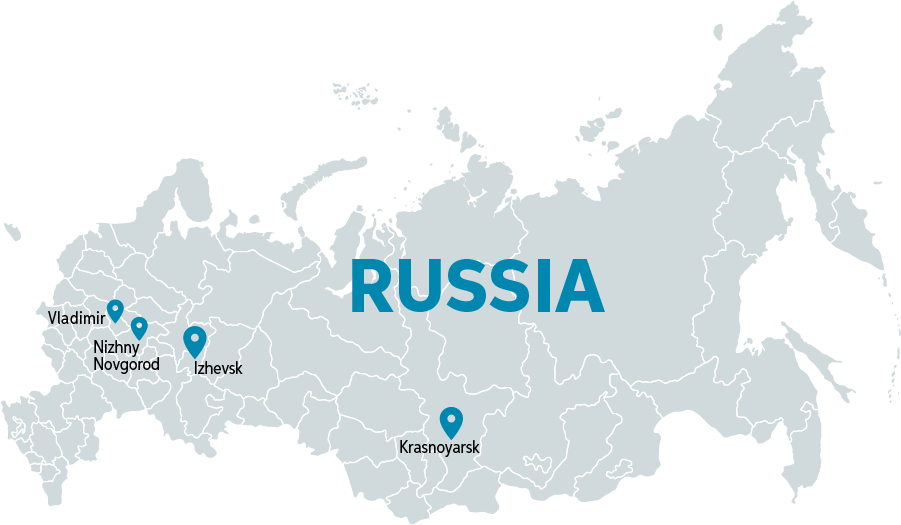
Pastors and evangelists in Krasnoyarsk, Siberia gathered for a global Leadership Summit. Many sought renewal of their vision, encouragement, and new tools for ministry.
Mega City Campaign held in Bishkek, Kyrgyzstan
Fifty pastors shared with us that Bishkek had never seen such a monumental evangelistic outreach spanning over 30 days. Approximately one million people heard the gospel message repeatedly in their homes and various media outlets in the city. Over 6,000 families contacted our call centre in this predominantly Muslim city.
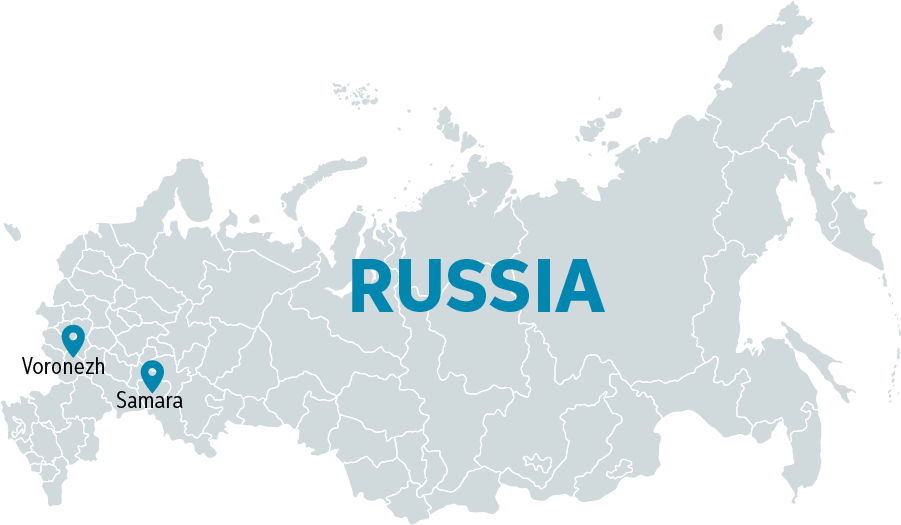
Samara is a city of 1.5 million residents and 30 churches with no more than 2,500 members combined. Laura and Hannu Haukka met with the ministers of evangelism and led the discussion on maximizing their church growth with media.
The backbone of the Samara multimedia saturation campaign was television media. 26 carefully chosen dynamic life stories locally produced by IRR/TV camera crews for the telecasts. In addition, the TV programs were seen in hundreds of villages and townships in the province of Samara. The total viewing audience was estimated to have peaked at 4 million. The campaign was not limited to television.
Other major media used included:
- 560 TV and Radio spots on the major channels—otherwise closed to programs of Christian content.
- Evangelistic radio programs including local stories of changed lives on two major FM radio stations.
- 16 full-sized (6×3 meters) billboards consisting of three portraits and slogans on dramatic life change
- 3 giant video screens 10×10 meters in centrally located spots in the city at three-minute intervals declared “God gives the power to change!”
- 300,000 campaign leaflets hand-delivered to 300,000 homes by hundreds of church volunteers.
- 1,400 posters went up across the city.
- 50,000 tailormade highly evangelistic “Power To Change” campaign books were delivered to friends and neighbours.
- Special events and campaign services.
- The 24/7 hotline received 5,000 calls during the campaign.
Calls continued to come through even though the visibility in the media was scaled down. The campaign television media alone had reached 3 million people in the province of Samara. The call centre logged thousands of calls and 3,000 names and addresses were added for further contact by IRR’TV-trained counsellors.
Over 3,000 of them had asked to be contacted personally by a local congregation. Another 200 people had called and asked to be admitted, with the help of the congregations, to drug and alcohol rehabilitation centres.
Life Changed!
A member of parliament who had represented the city of Samara at the round table when the campaign was launched, wanted to attend one of the events. He had openly wept at the close of the service and prayed to God to change his heart. He later shared: “The program on deliverance from addictions made a profound impact on my life. One after another I watched as the people stood up and shared their stories.”
- I was addicted to alcohol for 20 years but now I am free and I’m married and have children!
- I was addicted to heroin for 7 years, but now I am free in Jesus!
- I was hooked for 5 years, I needed it every day! I have been free for 5 years now and I serve others in a Christian rehab centre.
The MP told the pastor: “You have no idea how much influence your churches have in this city. Our city officials speak loudly about their work with little or no results. You have a great ministry and it is not even mentioned publicly.” He later participated in one of the live telecasts and assisted churches involved in the mission.
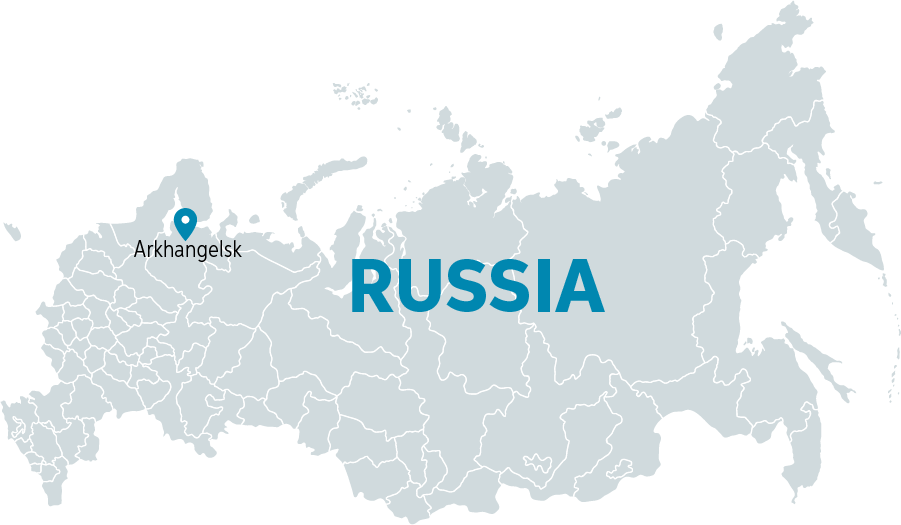
Throughout the campaign, many miracles gave testimony of God’s power. One such miracle occurred to a six-year-old boy who, despite his age and endless speech therapy, had been unable to read aloud. He was walking past a giant campaign billboard with his mother when he suddenly spoke, clearly reading the text: “God gave me the power to survive. Call and you will receive a book as a gift.” The startled mother’s surprise turned to joy. She called the number and received the book as a gift and this was the boy’s mother’s first step toward a new life in Christ.
IRR/TV provided humanitarian aid and the gospel message to 40 children’s camps in Russia, Ukraine, Kazakhstan, and Kyrgyzstan. The children’s crimes varied greatly. Many had stolen simply because they were hungry, and either they had parents who were incapable of taking care of them due to addictions or were orphaned.
Hannu shared, “I was moved when I took a photograph of the boys. The boys crowded around trying to find themselves on the screen of the digital camera. ‘He took a picture of us’, said one boy beaming with joy. ‘We were in a photograph,’ shouted another. It was hard for the boys to imagine someone had come to the prison and thought they were worth photographing. When I left the boys I thought, what they need most is love.”
There are tens of thousands of prisoners in Russia. IRR/TV has focused on reaching these children behind bars. Christmas meals and spiritual nourishment were provided for the children along with thousands of full sets of winter clothing, footwear as well as supplies for basic hygiene.
Hannu shares: “I will never forget our visit to the children’s prison camp in Sterlitamak at the foot of the Ural mountains. It was well below freezing and in places the snow was waist deep. 250 young boys stood in the courtyard in freezing weather waiting to receive their own new winter hat, coat, pants, socks, and shoes. These boys had not seen underwear in 5 years. We brought them 1000 sets.”
Colonel Salavat Karimov stood before the boys as he spoke to the press:
“Never before have foreign guests visited this camp. I have served here for 18 years and have never seen such generosity! Your help is truly tremendous and your gifts will have a great impact on the boys’ lives, their behaviour and even their future. Yet, what touched them most were the words that you spoke today encouraging the boys to choose the right road in life.”
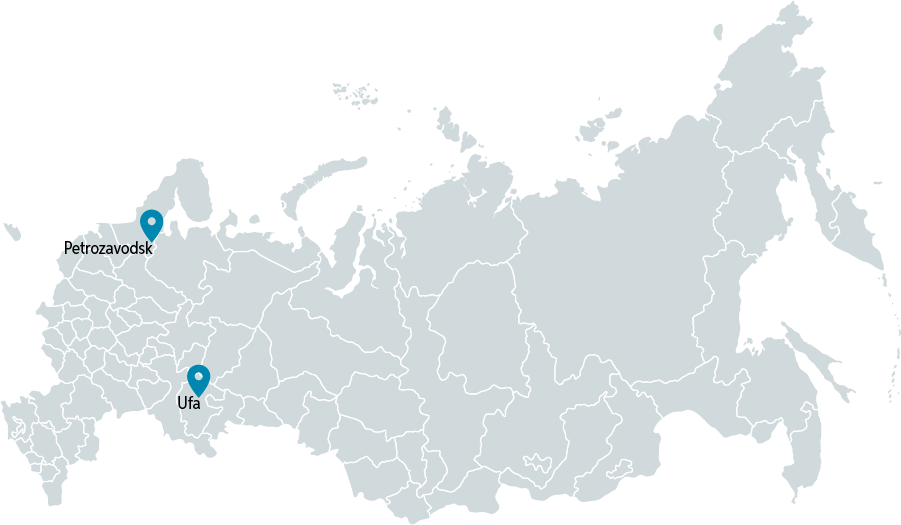
By the second Sunday of the 6-week campaign in Ufa, significant numbers of people had already responded. 600 people came out to a special event at a church where Pastor Silchuk shared, “You can experience the power to change because of one person, that is Jesus Christ, the Son of God”. When the invitation was given about 30 people stepped forward to the podium to make a public decision for Christ.
Among them, was a Russian Ministry of Justice official who was responsible for the registration of all religious organizations in the predominantly Russian province. The official had fiercely resisted the registration of several churches in the provincial capital Ufa in what amounted to open persecution of the Church. This was the same person who stepped forward to publicly commit to Jesus! Three more Ministry of Justice officials made decisions for Christ a while later.
Campaign ads on public transportation were found to be effective. Ufa painted a streetcar with the “Power To Change” colours and placed ads on both sides for 6 months. The streetcar proclaimed that Jesus gives the power to change as it travelled through the city.
Petrozavodsk
Mission Petrozavodsk became the talk of the town in one day. The city’s largest billboard across the street from the University measuring 100 feet in length, has a compelling testimony from a well known local musician Sergey Shelygavosky. “I was going to end my life but God gave me new purpose.”
One caller, in Petrozavodsk, was a wealthy businessman. He had lost all his money at a casino and as a result, his wife and children. He decided at the last moment to call the call centre during the campaign, and a pastor was dispatched to talk with him. He was found holding a heavy rope… They prayed together and the man made a personal decision for Christ. The mission has kept in touch and is doing well growing in his faith.
During the megacity campaign Petrozavodsk, special events were held for city officials, businessmen, and the general public. The number of new visitors in the city congregations increased dramatically throughout the campaign.
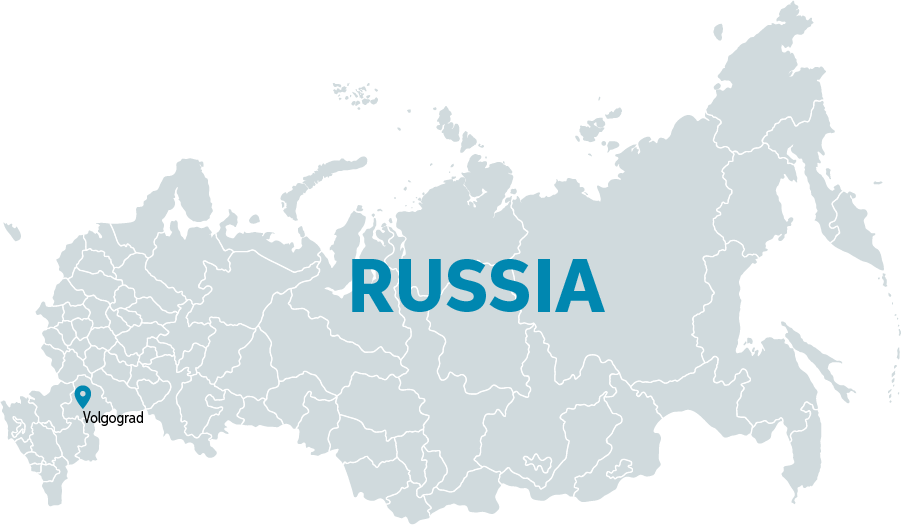 A powerful evangelistic Mega City Campaign begins in Volgograd, South Russia, and expands to Central Asia and Ukraine. Media Campaigns become a game changer for urban missions, focused on prayer and carefully planned strategies to reach the lost living in a mega city. Each city was saturated with the gospel for one month, one city at a time.
A powerful evangelistic Mega City Campaign begins in Volgograd, South Russia, and expands to Central Asia and Ukraine. Media Campaigns become a game changer for urban missions, focused on prayer and carefully planned strategies to reach the lost living in a mega city. Each city was saturated with the gospel for one month, one city at a time.
The first Mega City Campaign was held in Volgograd on the shores of the Volga River. Russia had not seen anything like it. The secular press expressed shock at how 50,000 people were suddenly flooding heretofore empty churches. The campaign provided unprecedented publicity, bringing the Gospel directly to their city. The call centres had banks of phones operated by volunteers around the clock, taking requests for the campaign book.
The life of a well-known cardiologist in Volgograd was totally changed, as a result of the campaign. So much so, that he left his hospital position and became a pastor. After his transformation story aired on TV, he could no longer continue his normal responsibilities without interruptions, as hospital personnel and others wanted to hear more.
And this was only the beginning…
Every city has its own story
In the Ural Mountains, in the Islamic Republic of Bashkortostan, five colonels of the Ministry of Justice and other officials came to faith in God.
In the city of Ufa, half of those who requested prayer belonged to the Islamic Bashkir people group.
In the northern cities of Arkhangelsk and the Karelian city of Petrozavodsk, the Air Force and mafia called to request copies of the campaign books with the transformation stories.
Dimitry wrote:
 In Odessa, Dmitri wrote: “I want to be saved! Please help me. I can no longer help myself. Nothing is working in my life. You are my last hope. No one loves me and I am unable to love anyone. I have wasted my life. Please help. I am weary. Satan has won. My only hope is Christ.” That same day we contacted the local congregation and sent a believer to meet Dmitri.
In Odessa, Dmitri wrote: “I want to be saved! Please help me. I can no longer help myself. Nothing is working in my life. You are my last hope. No one loves me and I am unable to love anyone. I have wasted my life. Please help. I am weary. Satan has won. My only hope is Christ.” That same day we contacted the local congregation and sent a believer to meet Dmitri.

